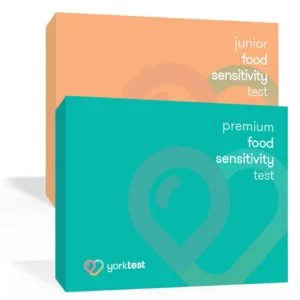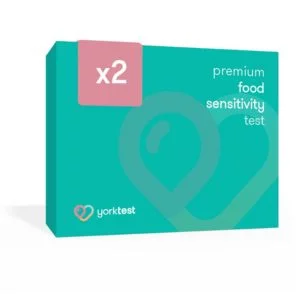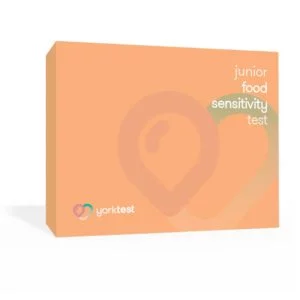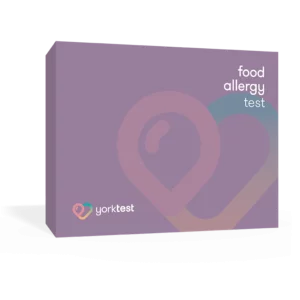- How healthy is beef?
- What is the difference between a beef allergy and a beef intolerance?
- What causes a beef intolerance?
- Can you outgrow a beef intolerance?
- How do I check if I have a beef intolerance?
- 8 out of 10 customers saw an improvement following a yorktest programme
- Premium Food Intolerance Test
- Now was £349(save £100)
- What is a yorktest programme?
- Does a yorktest food intoleranceâ programme test for beef?
- What can I eat instead of beef?
- Are you suffering from beef allergy or beef intolerance? Get in touch and we can help
- Request a callback
- What our customers say
- What our customers say about us on Trustpilot
According to the National Beef Association, UK consumers spend approximately £3,136 million on beef per year.
Many enjoy beef as a leisurely Sunday treat, others prefer a lean steak as a protein-packed alternative to health drinks, but some may find that the meat leaves them feeling a little worse for wear.
If you find that you feel ill time and time again after eating beef or red meat is giving you an upset stomach, then it could be the case that you have a beef intolerance.
If there’s something on your plate that’s making you feel not quite 100%, and you suspect beef but you’re not quite sure, take a look at our guide below to see if beef might be the problem. After all, a meat intolerance isn’t unherd of.
How healthy is beef?
When consumed in moderation, beef can be a diet staple rich in energy-boosting minerals and nutrients. Beef provides a substantial amount of protein and an abundance of nutrients, such as zinc, iron and Vitamin B12.
In recent times, there has been speculation and reports that red meat may contribute to certain diseases, such as diabetes. It’s worth keeping in mind that when you’re looking at the health benefits of meat, red meat in particular can take different forms and not all of it can be healthy.
Processed meat, for example, goes through various processing methods to achieve the end product, such as beef burgers, jerky and bacon. These types of meat are not considered healthy. Processed beef usually contains a high amount of salt and fat due to the processing methods, as well as adding several chemicals, such as nitrates.
Unprocessed meat, on the other hand, should be enjoyed as part of a healthy diet. The NHS in the UK recommends that you should eat no more than 70g of red meat per day. To put this figure into perspective, a typical fry-up breakfast containing two sausages and two bacon rashers contains 130g.
What is the difference between a beef allergy and a beef intolerance?
Many people confuse an intolerance with an allergy, but the two are very different. Potentially life-threatening and quite rare, the immune response that causes an allergic reaction (IgE) usually happens soon after consuming specific foods, such as peanuts or shellfish and it affects around 2% of the population.
Symptoms of a beef allergy may include:
- Difficulty breathing
- Feeling faint
- Rapid heart rate
- Hives
- Abdominal pain and vomiting
- In severe cases, anaphylaxis
A food intolerance, on the other hand, may provoke an IgG reaction and is estimated to affect around 45% of the UK population*. The body’s abnormal reaction to certain foods can cause gastrointestinal upsets and an array of wide-ranging symptoms, such as:
- Irritable Bowel Syndrome (IBS)
- Bloating
- Diarrhoea
- Headaches/migraines
- Tiredness
- Joint pain
- Respiratory problems
Although not life-threatening, the uncomfortable symptoms associated with a food intolerance can have a major impact on a person’s quality of life.
What causes a beef intolerance?
Food intolerances have been on the rise in recent years. Though, it’s uncertain whether this is due to awareness being more prominent or whether there’s other factors at play, such as:
- Farming practices
- Additives and preservatives
- Stress levels
- Antibiotic usage
A beef intolerance in the body is caused by the body incorrectly recognising certain proteins within beef as a harmful substance. This occurs most frequently during digestion, where small amounts of food are leaked through the lining of the gut into the bloodstream.
The body recognises these particles as foreign bodies – even though they are harmless – leading to an immune system response, and the release of IgG antibodies. The release of these antibodies may trigger inflammation, which can result in the uncomfortable physical symptoms of intolerance.
Can you outgrow a beef intolerance?
The good news is that if you do have a beef intolerance, you don’t necessarily have to cut beef out of your life forever. Many people find that after a period eliminating or reducing the amount of beef they eat, they’re able to head back to the herd without the symptoms experienced previously.
How do I check if I have a beef intolerance?
Here at yorktest, if you think you have a beef intolerance, we believe that there are three options you can take:
1) Do nothing
Of course, ignorance is sometimes bliss, but when it comes to health, it’s always better to seek help. If a food intolerance is the symptom cause, it will persist or may even develop in the body over time if neglected
2) Choose to remove foods from your diet by second guessing
It can be second nature to attempt to guess which foods are contributing to certain symptoms. Bread, for example, might be assumed to be the culprit – however, there’s a variety of potential trigger ingredients, such as wheat, gluten and even yeast. As a result, foods might be cut from the diet unnecessarily.
3) Take a food sensitivity†test to identify your food triggers and fast-track their elimination diet
A credible IgG food sensitivity†test is used as a strategy for identifying foods to which a person may be sensitive. yorktest have found that the average person with positive results typically reacts to 4 to 5 ingredients. This shows there could be some unsuspecting ingredients that may be challenging to find by simply removing ingredients that feel suspect.
8 out of 10 customers saw an improvement following a yorktest programme

Premium Food Intolerance Test
- Take the test in the comfort of your own home
- 208 food and drink ingredients tested
- Identify food triggers such as cow’s milk, eggs, wheat and gluten
- Fast & clear colour coded results within 7 days
- Money back if you have no reactions
Now
was £349(save £100)
What is a yorktest programme?
A yorktest food intolerance†programme tests your IgG reactions (the proteins found in foods) to up to 208 food and drink ingredients. In a recent customer survey, we found that 81% of surveyed customers reported an improvement in their symptoms following a yorktest programme**.
Does a yorktest food intolerance†programme test for beef?
Yes, we test for beef. We also test for other red meats such as lamb, pork, veal, venison, goat. Therefore, if you feel that there is a type of meat in your diet which is suspect to your symptoms, one of our Premium programmes will be able to identify your IgG reactions to that particular ingredient.
What can I eat instead of beef?
There are plenty of other meat options to choose from if you remove beef from your diet. As beef is rich in certain vitamins, such as Vitamin B12, it’s important to find equally nutritious options to make sure your diet remains balanced. This is why with every yorktest programme, we offer up to two 30-minute calls with our qualified nutritional therapists. You can meet our team here.
yorktest do not claim to treat or cure symptoms and recommend that you discuss any medical concerns you have with a doctor before undertaking a yorktest programme.
†yorktest define food intolerance as a food-specific IgG reaction
*Customer Survey Results 2018, surveying 343 respondents
Are you suffering from beef allergy or beef intolerance? Get in touch and we can help
Request a callback
One of our customer care representatives would love to help you understand more about our tests and aftercare support
or call us on
+44(0)1904 410 410
What our customers say
Many of our customers are thrilled by the service that we deliver and are happy to tell us. Read about what some have said about us here.
“I’m not waking up as much during the night, not as bunged up in my nose and I’ve got so much more energyâ€

Sally Gunnell OBE
52, Energy Levels
“I feel like I’m in a new body! I’m so much healthier. I can’t tell you how amazingly different I have felt since!â€

Emily Catterall
24: IBS​
“I am sharper, more motivated, focused & can think so clearly. No longer get flustered or confused when things are getting stressfulâ€

David Brown
39, Tiredeness & Brain Fog
“I felt like I could actually breathe again properly. Surprised, to be fair, how much of a difference that madeâ€

Fin Bigg
20, Breathing











